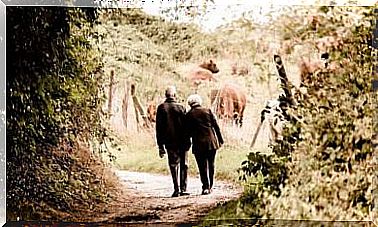Improving Social Skills: 11 Practical Tips

How to react to criticism? Do you have a large set of communication skills? Did you know that you can improve your social skills? Our social skills are learned behaviors. Improving them is as important a task as learning to walk, write and read.
Social skills are the necessary tools to interact with and relate to others in an effective and satisfying way. Below we will show you some communication techniques that will allow you to improve your social skills, in order to have better relationships with the people around you and learn how to resolve personal conflicts.
1. Broken disc technology
This consists of repeating the main message we want to express or things we want in a consistent way. In other words, to repeat the same phrase over and over again, regardless of what the other person is saying.
“We have a new promotional offer for…”
“I understand, but I’m not interested, please.”
“What do you think about…?”
“I understand, but I do not intend to buy it, please.”
“We could give you a special price…”
“No thanks, I’m not interested.”
2. Negative declaration
This is a way of responding to justified criticism without defending oneself too much.
“You performed the exercise too slowly.”
“I really could have done it faster, that’s true. I’m sorry.”
Negative interrogation
This is useful for finding out what others are thinking, which makes communication easier when they criticize us. It helps to elicit sincere criticism from others. “What bothers you about the way I walk?” “What’s wrong with going to the theater?” “What’s wrong with the way I dress?”
4. To ask questions
Questions are there to help the other person notice an impulsive reaction. “Are you upset about something?”
5. To disarm anger
Ignore the content of the message being conveyed (insults, criticism…) and focus your attention on the fact that the other person is angry. For example, you can shift the focus of the conversation from the content to any process that is observed in the other person, such as an emotion or behavior he or she exhibits.
6. The sandwich technique
One of the most effective techniques for improving your social skills is to start with a positive aspect, follow up with an aspect that can be improved and end with motivating words of trust.
“I know you’re working hard to change your attitude. And it’s noticeable, you’ve improved. I know you can get better at [aspect to improve]. You will surely be able to do it soon. ”
7. Repeat what the other person is feeling
Repeat what the other person is saying to send a message that you understand, but without in any way suggesting that you agree with what is being said. “I know it’s very important to you that I lend my car to you, but…”
8. To show affection
Showing affection is fundamental to maintaining healthy relationships. Sometimes we have to do more than just express ourselves with words, for example through a hug, kiss, hand on shoulder or even a smile. Emotions can also improve our social skills.
9. To offer compliments
Just as we ourselves like to receive compliments, we must also know how to give them.
10. “I” message
“I” messages are used to express our opinion or express our beliefs to the other person instead of using generalizations. What is in a certain way for you is not necessarily in the same way for the other person. “I think that”, “I think that”, “I think that”
11. To maintain conversations
This is to maintain a balance between listening and speaking, which makes our participation satisfactory. Some useful techniques are to look at the other person, respect his turn to speak, give signs that we are listening (nod his head for example), talk about something that is related to what he says and clarify that we have changed the subject, and more .
In general, we can always improve our social skills and the way we relate to others. Above all, we must be willing to begin to practice what we learn.








